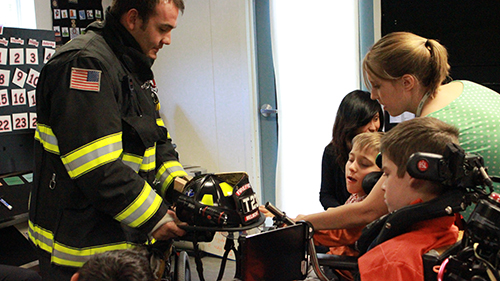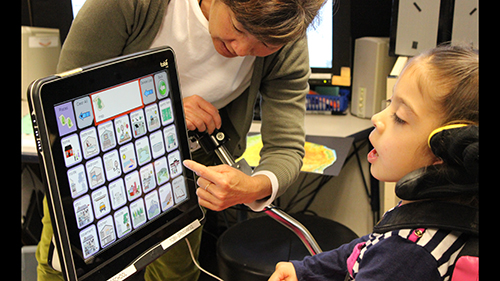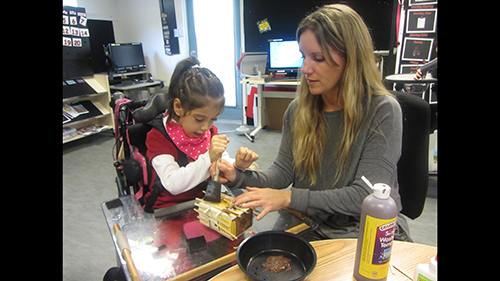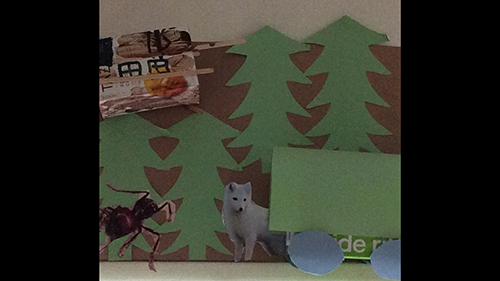History-Social Science draws from diverse fields of history, geography, economics, political science, anthropology, psychology, sociology and the humanities. At its heart, the broad goal of History-Social Science focuses on helping young people develop the ability to make informed and reasoned decisions for the public good. Instruction aims to develop responsible, informed and engaged citizens who will foster civic, global, geographic and economic literacy.
Teaching is centered in the chronological study of history. History, placed in its geographic setting, establishes human activities in time and place. In other words, the importance of time and place, when and where, history and geography, is stressed repeatedly. Students develop chronological thinking through making and reading timelines that correspond to their unit of study. They begin to develop geographic skills by using maps to identify the absolute and relative locations of places and environments. Students also begin to develop civic skills by participating in rule-making processes in their classrooms, decision-making scenarios, and service-learning activities that address real problems at school or in their communities. Our students learn to see the connections between ideas and behavior, between the values and ideals and the ethical consequences of those beliefs. Students learn about the values of fair play and good sportsmanship and respect for the rights and opinions of others. They hear and read stories of ordinary and extraordinary people to describe the range and continuity of human experience and introduce the concepts of courage, self-control, justice, heroism, leadership, deliberation and individual responsibility. Students begin to realize that tragedies and triumphs have resulted from choices made by individuals and begin to recognize that ideas and actions have real consequences.
Students typically learn social studies content and skill based on their own personal experiences and prior knowledge from home, the community and early schooling. For example, students with severe speech and physical impairments (SSPI) may bring their own experiences of their voices going unheard or their opinions marginalized. Our social studies curriculum recognizes the critical role of previous learning that is anchored in each child’s personal experiences, home language, family and immediate world. Our curriculum builds on this knowledge to develop an ever-expanding sense of each student’s sense of place within the world first by focusing on the child’s immediate present and/or prior knowledge and then moving outward to develop important linkages with the larger geographic, historical, political and economic world. As Bridge School students participate in History-Social Science units, appropriate adaptations and strategies are implemented to facilitate learning. Textbooks may need to be adapted for access and vision, alternate materials introduced and assistive technologies incorporated to provide access and meaningful active participation.
Importantly, our teachers and speech and language therapists align History-Social Science instruction to the grade-level expectations in the domains of English Language Arts (ELA). Classroom teams introduce important foundational skills that serve as building blocks for subsequent grade level instruction while providing opportunities for students to learn academic language, read and write expository texts and develop higher-level thinking and problem-solving skills. Instruction emphasizes the importance of enriching the study of history with the use of literature, both literature of the period and literature about the period. Poetry, novels, plays, fairy tales, essays, myths, legends, tall tales and biographies help to shed light on the life and times of the people and spark students’ own thinking and imagination. This literature helps to reveal the way people saw themselves, their ideas and values, their fears and dreams, and the way they interpreted their own times.

Aidan is creating his flag with his teacher’s help. Using an AAC strategy called live voice scanning, Aidan has chosen the colors he wants on his flag and he’s chosen a picture. He has also completed a sentence and directs his teacher where he would like his sentence placed on the flag.

The Communities unit culminated with a visit from a Policeman and Fireman. Students used AAC tools to ask and answer questions, and were able to see first-hand the equipment and tools real police and fireman require as part of their jobs.

Social Studies gives students experience with vocabulary common to places found in familiar environments. Jackie and her teacher are exploring a communication page on her SGD that gives her access to words for places in her home, in her community, and in geographical environments elementary school students will encounter personally and through their studies.

Social Studies focuses on vocabulary to describe experiences, both personal and historical. When students generalize vocabulary assigned to their own lives to unfamiliar people and places, new information becomes more relatable and accessible. Students completing a unit on Daniel Boone were able to apply vocabulary used in their Family and Community units to support their understanding of early Americans. For their unit on Daniel Boone, they created 3-D maps that included log cabins, covered wagons, animals, and landscapes found during Daniel Boone’s lifetime. With her teacher’s help, Jackie paints the log cabin she’ll place on her map.

Jackie completed her 3-D map by directing the teacher where to glue her trees, cabin, covered wagon, and animals.
Mehler, L. & Heller, K.W. (2010). Science and social studies instruction and adaptations. In S. J. Best, K. W. Heller, & J. L. Bigge (Eds.), Teaching individuals with physical or multiple disabilities (pp. 432-455).Upper Saddle River, NJ: Pearson.
National Curriculum Standards for Social Studies: Introduction (2014) http://www.socialstudies.org/standards/introduction
History–Social Science Framework Field Review Draft (2014) http://www.cde.ca.gov/ci/hs/cf/hssfwforfieldreview.asp